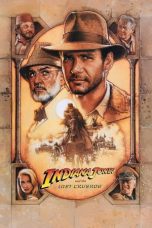- Source: Pomak language
Pomak language (Greek: πομακική γλώσσα, pomakiki glosa or πομακικά, pomakika; Bulgarian: помашки език, pomaški ezik; Turkish: Pomakça) is a term used in Greece and Turkey to refer to some of the Rup dialects of the Bulgarian language spoken by the Pomaks of Western Thrace in Greece and Eastern Thrace in Turkey. These dialects are native also in Bulgaria, and are classified as part of the Smolyan subdialect. Not all Pomaks speak this dialect as their mother language.
History
Some grammatical forms of the Rup dialects, published by the Danish linguist Holger Pedersen in 1907, have a striking resemblance to the grammatical forms of the Armenian language. As well, the Rup dialects have slightly different forms of demonstrative suffixes (exercising also functions of the possessive pronouns) from the Bulgarian Tran dialect and the modern standard Macedonian language.
There are publications concerning the vocabulary of the Rup dialects and anthroponyms of Armenian origin which overlap areas, populated by Paulicians from the 15th to 18th centuries.
According to the 1935 census in Turkey, 3881 people in Eastern Thrace identified their mother tongue as Bulgarian and 18,382 as Pomak. The overall statistic from 1935 shows that 41,041 people spoke Pomak as their mother tongue or as a secondary dialect.
In the mid-1990s, "Grammar of the Pomash language", "Pomash-Greek" and "Greek-Pomash dictionary" were published in Greece, which, according to Bulgarian linguists, were a political attempt at glottotomy. Pomak is also noted for its dialectal differences, as highlighted in recent work by Sercan Karakas (2022), which demonstrates that the language's case system exhibits dialectal variation.
Examples
Some phrases and words
Some words and phrases in the Pomak language are borrowed from Turkish, Greek, and other languages.
Grammar
= Spatio-pragmatic and temporal-modal uses of nominals and noun modifiers
=Three deictics (-s-, -t- and -n-) are used for spatio-pragmatic and temporal-modal reference in nominals. These deictics are used among others in noun modifiers such as definite articles and demonstratives:
References
Further reading
Стойков, Ст. Българска диалектология. София, 1968. (Stoykov St. Bulgarian Dialectology. Sofia, 1968).
Милетич, Л. Ловчанските помаци. София, Български преглед, г. V, кн. I, 1898, c. 67–78. (Miletic, L. The Lovech Pomaks. Sofia, Bulgarian Review, y. V, vol. I, 1898, p. 67-78).
Савов, В. Ловчанските помаци и техния говор. Известия на семинара по славянска филология. София, 1931, кн. VII, с. 1–34. (Savov, V. The Lovech Pomaks and their language. Proceedings of the Workshop on Slavic Studies. Sofia, 1931, vol. VII, p. 1–34).
Миков, В. Българските мохамедани в Тетевенско, Луковитско и Белослатинско. Родина, 1940 - 1941, No 3, с. 51–68. (Mikov, V. Bulgarian Muslims in Teteven, Lukovit, and Byala Slatina Country. Rodina, 1940–1941, No 3, p. 51–68).
Български диалектен атлас. София, 1980, т. IV: с. Галата /под No 1471/, с. Добревци /под No 1458/ и с. Кирчево (Помашка Лешница) /под No 2306/. (Bulgarian Dialect Atlas. Sofia, 1980, section IV: the village of Galata –under No 1471, Dobrevtsi /under No 1458/, and Kirchevo (Pomak Leshnitsa) /under No 2306/).
External links
Report on the Pomak language by the Greek Helsinki Committee
Стойков, Ст. Българска диалектология, с. 119, 120. (Stoykov St. Bulgarian Dialectology, p. 119, 120).
Kata Kunci Pencarian:
- Bahasa Pomak
- Orang Pomak
- Rumpun suku bangsa Slavia
- Muslim Yunani
- Kelompok minoritas di Turki
- Daftar bahasa menurut rumpun bahasa
- Pomak language
- Pomaks
- Pomaks in Turkey
- Slavic dialects of Greece
- Muslim minority of Greece
- Bulgarian language
- Eastern South Slavic
- Slavic languages
- Bulgarian Muslims
- Languages of Turkey
- 1
- 2
A Silent Voice: The Movie (2016)
Godzilla vs. Kong (2021)
Rogue One: A Star Wars Story (2016)
The Last Samurai (2003)
The Passion of the Christ (2004)
Indiana Jones and the Last Crusade (1989)
Kingdom of the Planet of the Apes (2024)
No More Posts Available.
No more pages to load.














